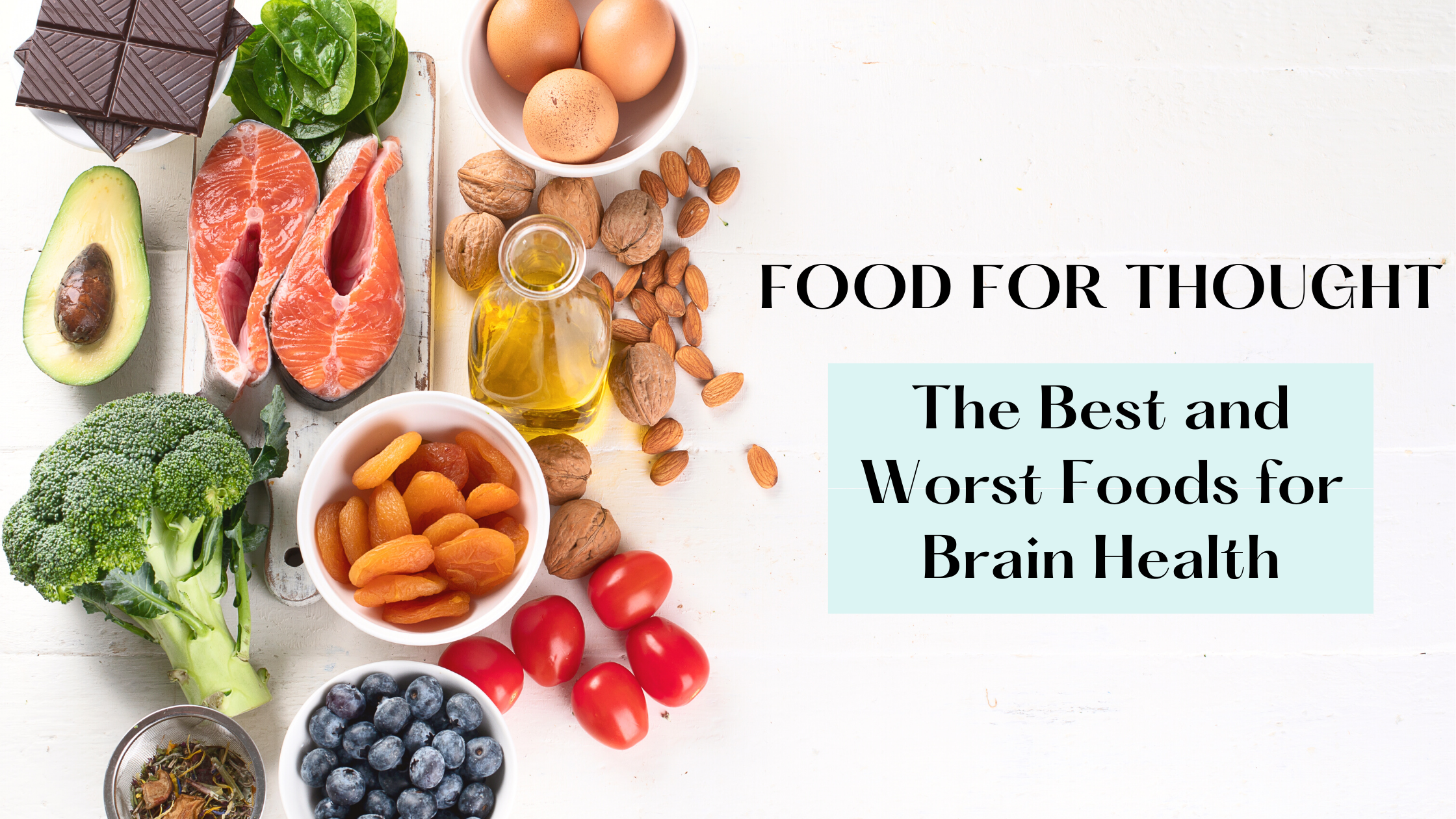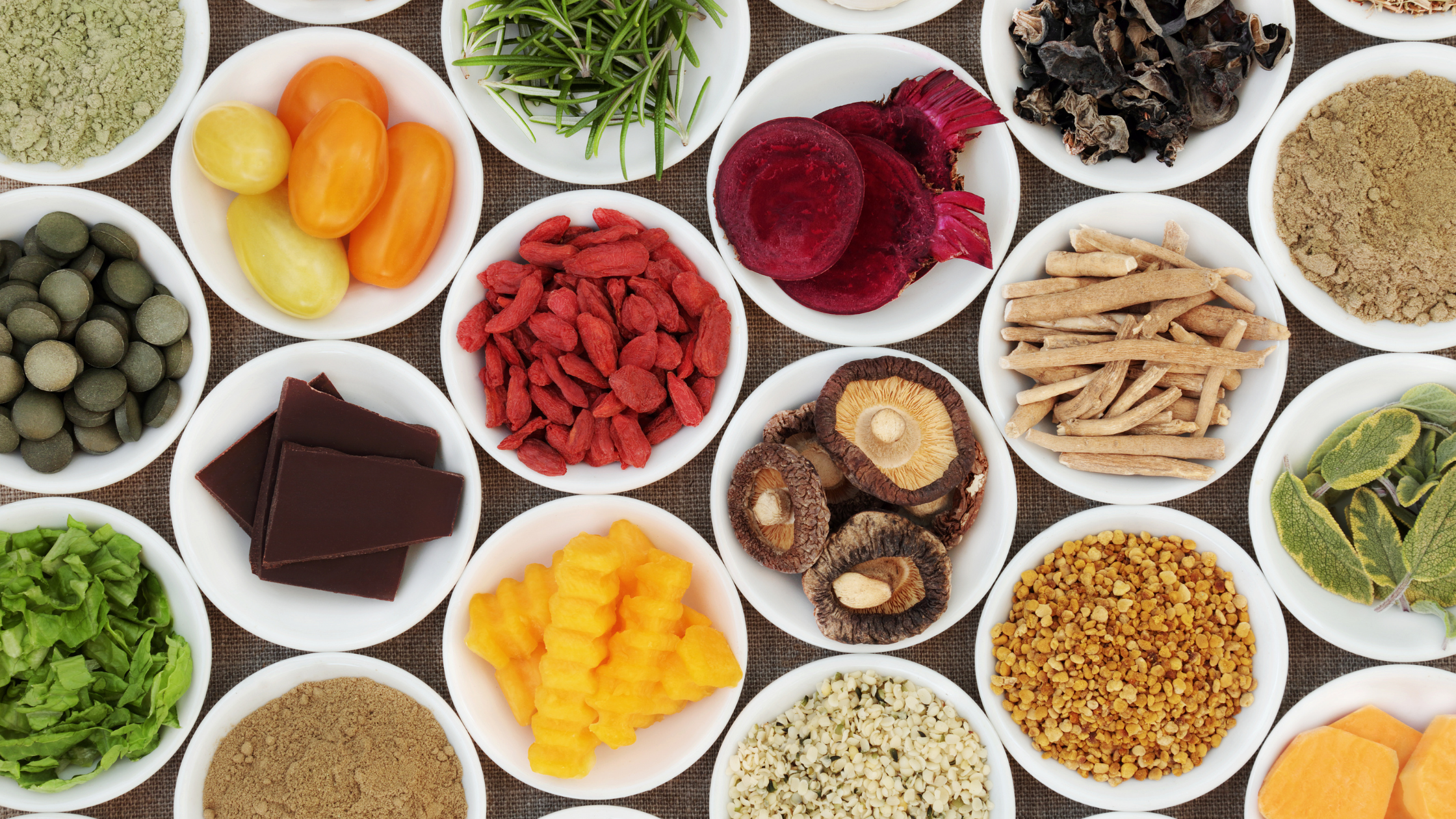Tell me what you eat, and I will tell you what you are.
– Jean Anthelme Brillat-Savarin (1775 – 1826)
Food is fuel: it provides the body with the energy it needs to function. And it connects people, bringing us together and often serving as a major feature of important gatherings. It’s also a source of pleasure, stimulating the release of feel-good hormones into the bloodstream. But what if we start looking at food as a technology?
Nutritional science has taught us that the food we eat has a direct impact on our health, both in the short and long term. Like the hormones that act as messengers in the body, food is delivering its own set of information to our cells. In fact, nutrition, digestion, and hormone production are intimately connected. We’ve explored the role and behavior of neurotransmitter serotonin (the “happy hormone”) in a number of blog posts, but did you know that about 95% of serotonin is produced in your gastrointestinal tract?¹The lining of the gut is home to a hundred million neurons that influence thought and emotion, as well as a diverse group of bacteria that make up the gut microbiota and have a significant impact on mental health. While the direct connection might not always be so obvious, we need to nurture our brains with the food we put into our bodies.
The important role of the gut-brain axis
The gut-brain axis refers to the bidirectional communication of the central nervous system and the enteric nervous system of the intestine. Not only anatomical, the gut-brain axis extends to include endocrine, immune and metabolic communication pathways.
The intestinal microbiome has been shown to influence mood, behavior, and stress tolerance, and has also been linked to mental health disorders like anxiety and depression. Similarly, the brain appears to have a direct impact on the gastrointestinal system, as impaired brain function and chronic stress cause overstimulation of the vagus nerve, negatively influencing immune function and increasing blood circulation of the intestine. This results in harmful overgrowth of bacteria and fungi in the gut, which damages surface tissue and increases the risk of developing leaky gut syndrome. Both acute and chronic stress have been associated with the onset or worsening of common chronic digestive disorders, including gastro-esophageal reflux disease, peptic ulcers and inflammatory bowel disease.
The gut and the brain are a collaborative team with continual communication and a very close relationship. In the simplest terms, the gut influences the health of the brain, and the brain influences the health of the gut.
Feed the brain with a healthy diet
A proper diet nurtures and supports the brain in a number of ways. Balanced nutrition is important for neuroplasticity, as it encourages neurogenesis (the creation of new neurons) and fosters greater neuronal connections. Brain-derived neurotrophic factor (BDNF) is a protein that improves cognitive function, increases neurogenesis and reduces neuronal death. A high fat, high carb diet reduces hippocampal BDNF content, whereas a healthy, balanced diet increases BDNF levels and improves neurogenesis in the hippocampus, improving learning, memory, attention, mood, and overall mental health.
Omega-3 fatty acids are a critical element of a brain-boosting diet. As a major building block of the brain, omega-3s help to sharpen memory and improve mood. They also contain important components of cell membranes (EPA and DHA), which have potent anti-inflammatory properties and play an important role in brain function and development. A diet rich in omega-3 fatty acids supports brain health and have been found to reduce the severity of mild cognitive impairment and age-related cognitive decline.²
Some of the best nutrients to include in your diet to promote the longevity of your brain include:
- Antioxidants
- Polyphenols
- Fiber
- Vitamin E
- Alpha-linolenic acid
- Glucosinolates
- Magnesium

Here are 7 of our top brain-boosting foods:
1.) Turmeric – this powerhouse spice boasts a long list of health benefits, including potent anti-inflammatory properties, blood sugar regulation, and boosts levels of BDNF in the brain. It’s also said to be helpful in combating depression and may be useful in the prevention and treatment of Alzheimer’s Disease.
2.) Berries – a valuable source of vitamin C and antioxidants, berries are natural brain boosters. Several studies have shown these compounds to be effective in reducing symptoms of anxiety. ₃, ₄
3.) Eggs – egg yolks are a good source of choline, which has been shown to reduce inflammation and promote healthy brain functions. Including eggs in your diet can help to improve memory and may even reduce the risk of Alzheimer’s Disease.⁵
4.) Dark chocolate – Not only does chocolate encourage the reproduction of feel-good neurotransmitters serotonin and dopamine, but it’s also been shown to support brain health. Dark chocolate helps to reduce stress hormones, increase blood flow to the brain and improve cognitive function.
5.) Fatty fish – salmon, sardines and albacore tuna are a rich source of omega-3 fatty acids with high levels of DHA and EPA. Fatty fish supports brain health by protecting against cognitive decline, improving mood and sharpening memory.
6.) Nuts – nuts contain healthy fats, often high in omega-3 fatty acids (walnuts in particular). They’re also helpful in improving blood cholesterol levels and insulin sensitivity. (Reach for almonds, pecans, walnuts and pistachios.)
7.) Avocado – avocado is high in B vitamins, which are helpful in reducing stress. Additionally, vitamin B6 is a cofactor in the synthesis of neurotransmitters, including dopamine and serotonin.
Bonus round: pumpkin seeds, green leafy vegetables, green tea, chia seeds, flax seeds, organic oats and chickpeas.
Top foods to avoid in support of a healthy brain:
1.) Refined sugar – too much sugar leads to overstimulation of the brain, causing anxiety, mood swings and hyperactivity. Excess sugar in the diet may also contribute to neurocognitive deficits and impair learning and memory.⁶
2.) Vegetable Oils – vegetable oils are high in omega-6 fatty acids; too much of these fats in your diet can lead to chronic inflammation, and ultimately, disease. Avoid soybean oil, corn oil, cottonseed oil, and sunflower oil.
3.) High-fructose corn syrup – high-fructose corn syrup has been shown to be a risk factor for dementia and interferes with the brain’s ability to learn and retain information. It can also lead to type 2 diabetes, high blood pressure, insulin resistance and obesity – there are so many reasons to scrap this from your diet!
4.) Grains with glyphosate – glyphosate, which is a commonly used herbicide, is a major contributor to chronic toxicity and has been said to cause a host of health problems. This neurotoxin increases inflammation and impairs healthy brain function.
5.) Artificial food dyes – synthetic food colouring agents (mostly those with numbers attached) have been linked to cognitive dysfunction, including memory issues, difficulty learning, increased nervousness and an inability to concentrate.
Bonus round: also avoid aspartame, trans fats, cured meats and excessive dairy, which have been linked to brain related issues like depression, anxiety, mood swings, headaches, and manic episodes.
Sources:
1.) https://www.health.harvard.edu/blog/nutritional-psychiatry-your-brain-on-food-201511168626
2.) https://www.healthline.com/nutrition/omega-3-fish-oil-for-brain-health#TOC_TITLE_HDR_4
3.) https://pubmed.ncbi.nlm.nih.gov/26353411/
4.) https://www.ncbi.nlm.nih.gov/pmc/articles/PMC3964743/
5.) https://www.mdlinx.com/article/brain-healthy-foods-to-fight-memory-loss/lfc-4795
6.) https://theconversation.com/how-does-excess-sugar-affect-the-developing-brain-throughout-childhood-and-adolescence-a-neuroscientist-who-studies-nutrition-explains-173214#:~:text=Because%20glucose%20is%20the%20primary,only%20the%20short%2Dterm%20consequences.



